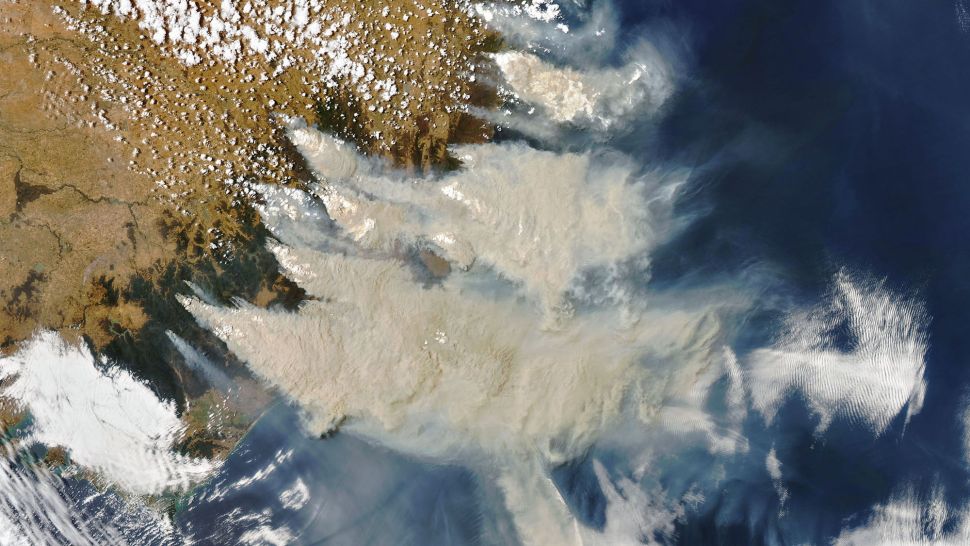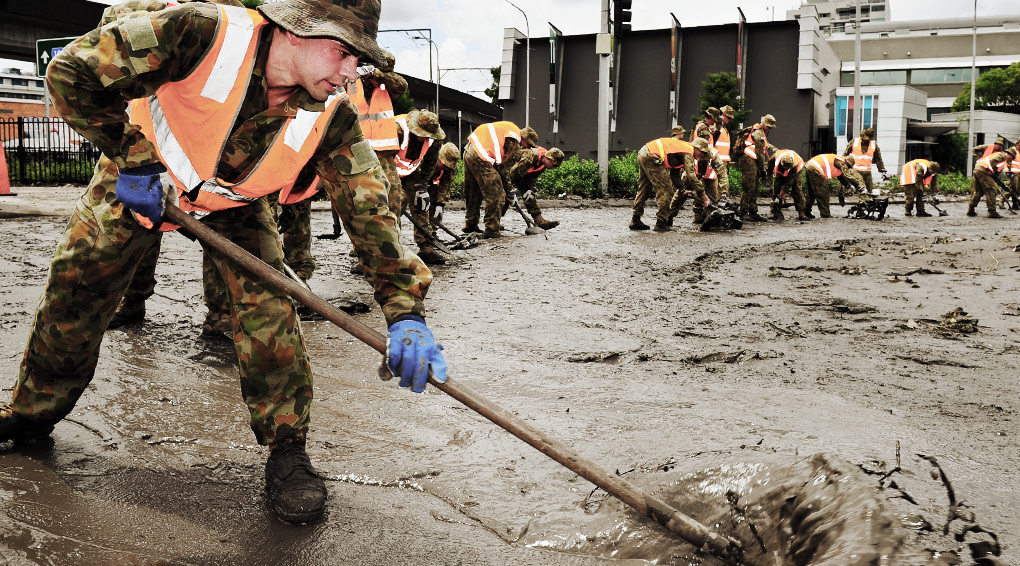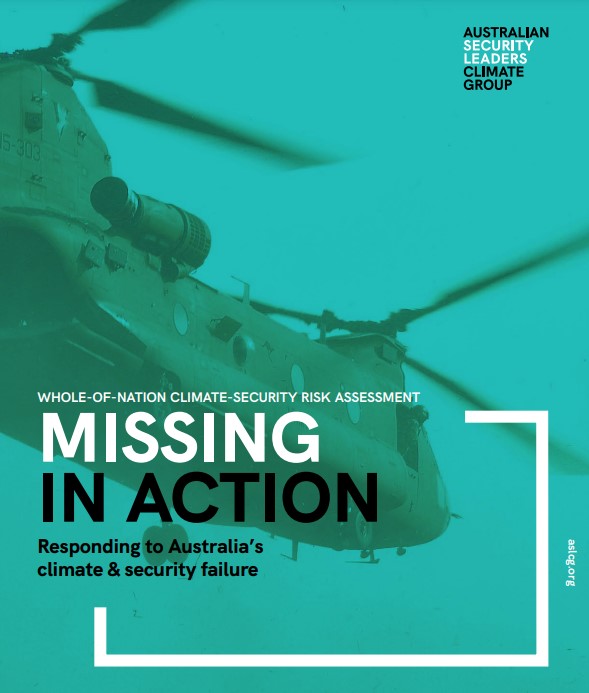The Australian Security Leaders Climate Group (ASLCG) is a non-partisan
network of Australian security and policy professionals that is working to reframe
the climate debate and make climate an immediate security priority in Australia.
The Australian Security Leaders Climate Group is concerned
While national security may not be the first concern that comes to mind in terms of climate risk, the Australian Security Leaders Climate Group (ASLCG) has significant concerns about the security implications of climate change in Australia and the Asia-Pacific region. This group, having proudly served our nation in the Australian Defence Force, feel Australia’s governments need to shift focus to “leading in action” to address climate change.
The inertia paradox
Successive Australian governments have underestimated climate risk, failing to grasp the complex interaction between extreme climate events and the impact of climate change on human systems. The extended time scale between cause (excessive carbon emissions) and effect (extreme climate events) gives the illusion the situation is not yet critical, and therefore does not need to be addressed, when in fact unstoppable and catastrophic climate disruption may already be in progress. This is referred to as the “inertia paradox”.
Australia is ill-prepared
As a result, Australia is ill-prepared for the effects of climate change, which we are seeing with increasing frequency here and in our region. Failure to address the root causes of climate warming (rapid emissions reduction) will result in greater pressure on the ADF and disaster relief agencies. The increasing frequency of extreme climate events such as storms, flooding, drought, heatwaves and bushfire is likely to stretch the ADF beyond its capacity to respond.

(Image credit: NASA/EOSDIS/LANCE/GIBS/Worldview/Joshua Stevens)
Supply chains will be impacted
In addition to climate events and emergencies, the effects of climate change will impact supply chains and trading relationships, as Australia is geographically isolated in a globally connected economy. Disrupted supply chains will result in increased costs and likely shortages of essential items, most notably fuel supplies and the subsequent effect on transport. Shortages and competition for essential items could potentially trigger social unrest, as was seen in the Arab Spring uprisings. While this may seem unlikely in Australia, consumer behaviour can be difficult to predict in stressful situations, a glimpse of which was seen in some supermarkets in the early weeks of the pandemic.
If ADF support needed for domestic or regional climate events overlaps with the need for the ADF to respond to international conflict, it is unlikely there would be sufficient resources to address both. If this situation were to develop, Australian security would be exposed to risk.

Source: https://adfjobs.weebly.com/infantry-officer.html
Australia does not currently have a National Security Strategy
ASLCG recommends coordinated leadership is required, working at all levels of government, with business and the community to acknowledge climate risks and keep our population safe. This should include:
- Independent risk assessments, including worst-case and most-likely climate impacts and security threats
- Implementing a coordinated approach for prevention and response capacity
- Urgently acting and investing to protect vulnerable communities, nations and natural environments
- Preventing further climate impact by investing in net zero emissions as quickly as possible
The crucial decade
This is the crucial decade to address climate change. Our government must act decisively and lead on this critical challenge.
Resources
- Read the ‘Missing in Action’ report here.
- Read ‘Reframing climate change as a core national security issue’ by the Institute for Integrated Economics Research here.
- Listen to former Chief of the Defence Force, Retired Admiral Chris Barrie (member of ASLCG) discuss Australia’s response to climate change with Patricia Karvelas on Radio National, 10/03/2022
- Hear members of the ASLCG express their concerns and their recommendations here.


